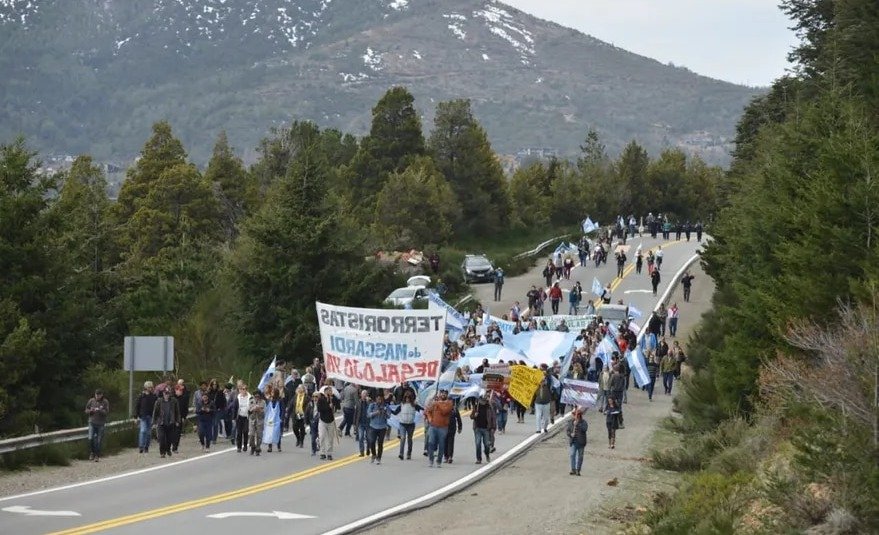The Argentine town of Villa Mascardi has been in dispute for years between the inhabitants of the area and the Mapuche community, accused of land usurpation.
The conflict escalated recently with the intervention of the Argentine police, who evicted the Lof Lafken Winkul Mapu settlement.
The conflict between a Mapuche community and the police put Villa Mascardi, an Argentine rural town in Bariloche, Río Negro province, on the Argentine news map.

The town, which according to the official census is inhabited by only 59 people -mostly men- is characterized by a few houses, a police station, a public school, and two hotels and is usually visited by scout groups and different parochial schools.
However, the tranquility of Villa Mascardi began to disappear in 2017, when the Mapuche community of Lof Lafken Winkul Mapu started a “territorial recovery” action in the area’s national parks as part of the Mapuche claim over the areas of Patagonia that they consider their ancestral lands.
Although the Argentine government had tried to defuse the conflict at the time with a dialogue table, tensions worsened after the talks broke down in 2020.
According to what neighbors of the area told the Argentine press, in the last few years, there have been several attacks on properties and houses in the area.
The locals denounced that, since 2017, a community of about 20 people, including minors, occupied six houses.
Tension increased in September 2022 when a group of hooded men set fire to a Gendarmerie mobile guardhouse intended to protect a property that had been previously vandalized.
The attack forced the withdrawal of five uniformed officers on the premises.
This episode prompted the governor of Río Negro, Arabela Carreras, to express the need for the intervention of the federal forces to solve the conflict.
The request was echoed by the Ministry of Security of the Nation, which created a Unified Command of Security Forces integrated by the Federal Police, Gendarmerie, Prefecture, and the Airport Security Police (PSA) of Bariloche.
THE POLICE OPERATION
On October 4, the Unified Command of Security Forces deployed 250 police troops in Villa Mascardi to block National Route 40 and prevent traffic from obstructing an operation mounted to enforce a court order to evict the squatters.
The operation, which according to the Minister of Security of the Nation, Aníbal Fernández, was carried out “without lethal weapons”, left seven women detained, among them one with an advanced pregnancy.
Five children from the community were also intervened by the Secretariat of Childhood, Adolescence, and Family (SENAF).
At the time of the security forces raid, the community’s men were not in the place.
The national government considered the operation “positive” and assured it would continue working on the case.
However, the Center for Legal and Social Studies (CELS) – an organization dedicated to defending human rights – warned that “a violent eviction does not resolve the conflict”.
For their part, native peoples living in the provinces of Río Negro, Chubut, and Neuquén expressed their support for the Mapuche community of Villa Mascardi.
With information from Sputnik

